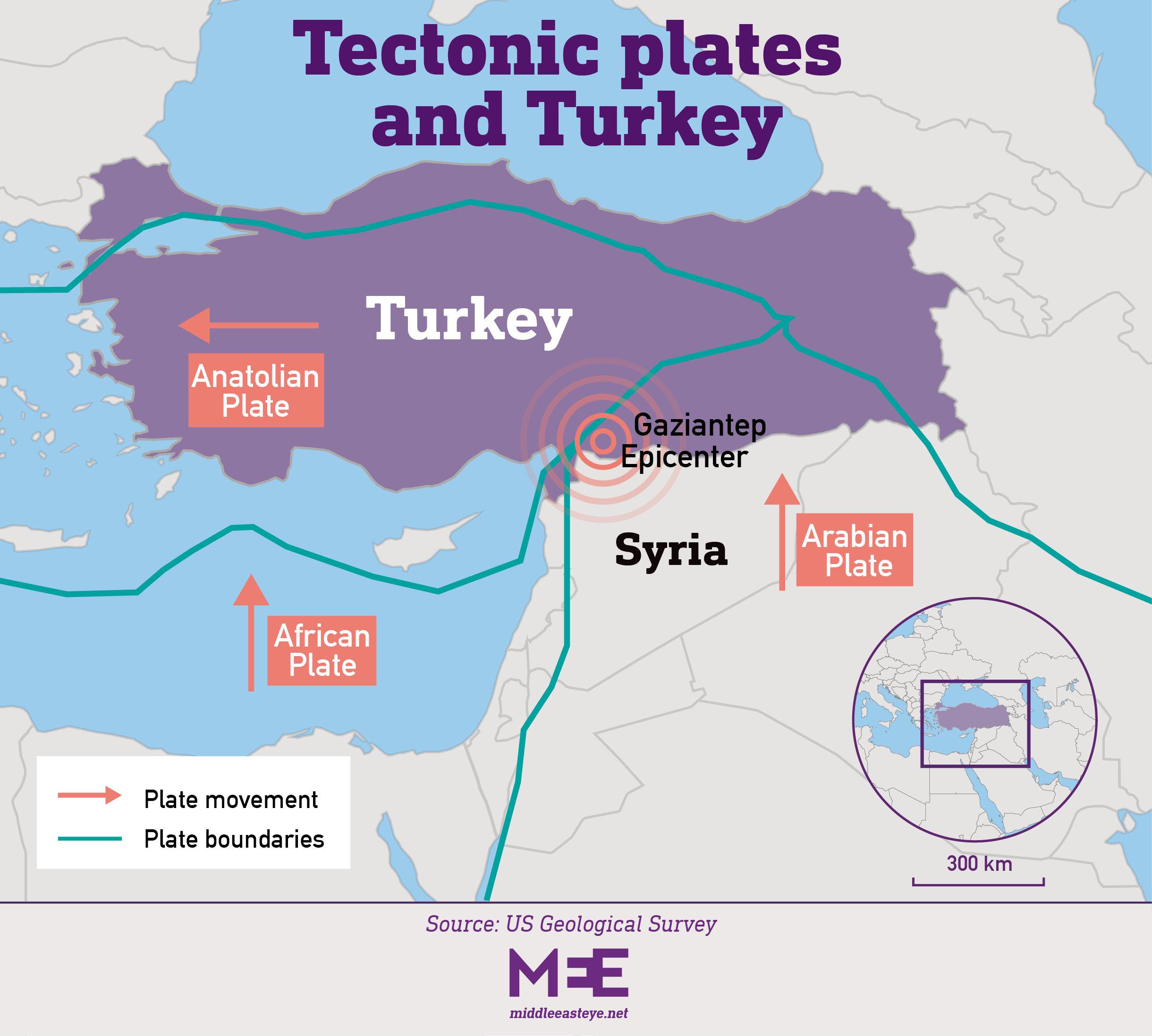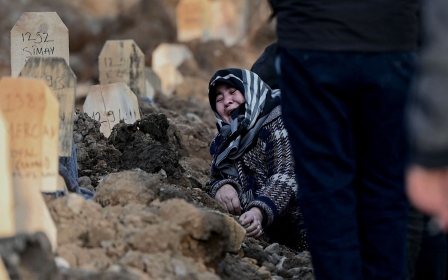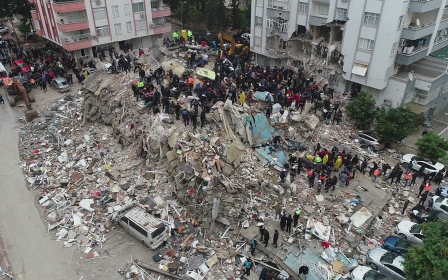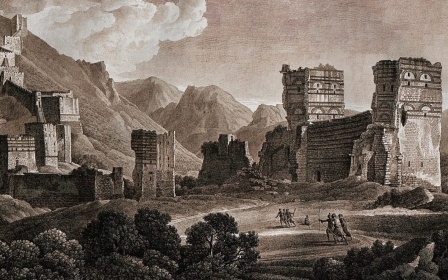Earthquake becomes deadliest in Turkey’s modern history
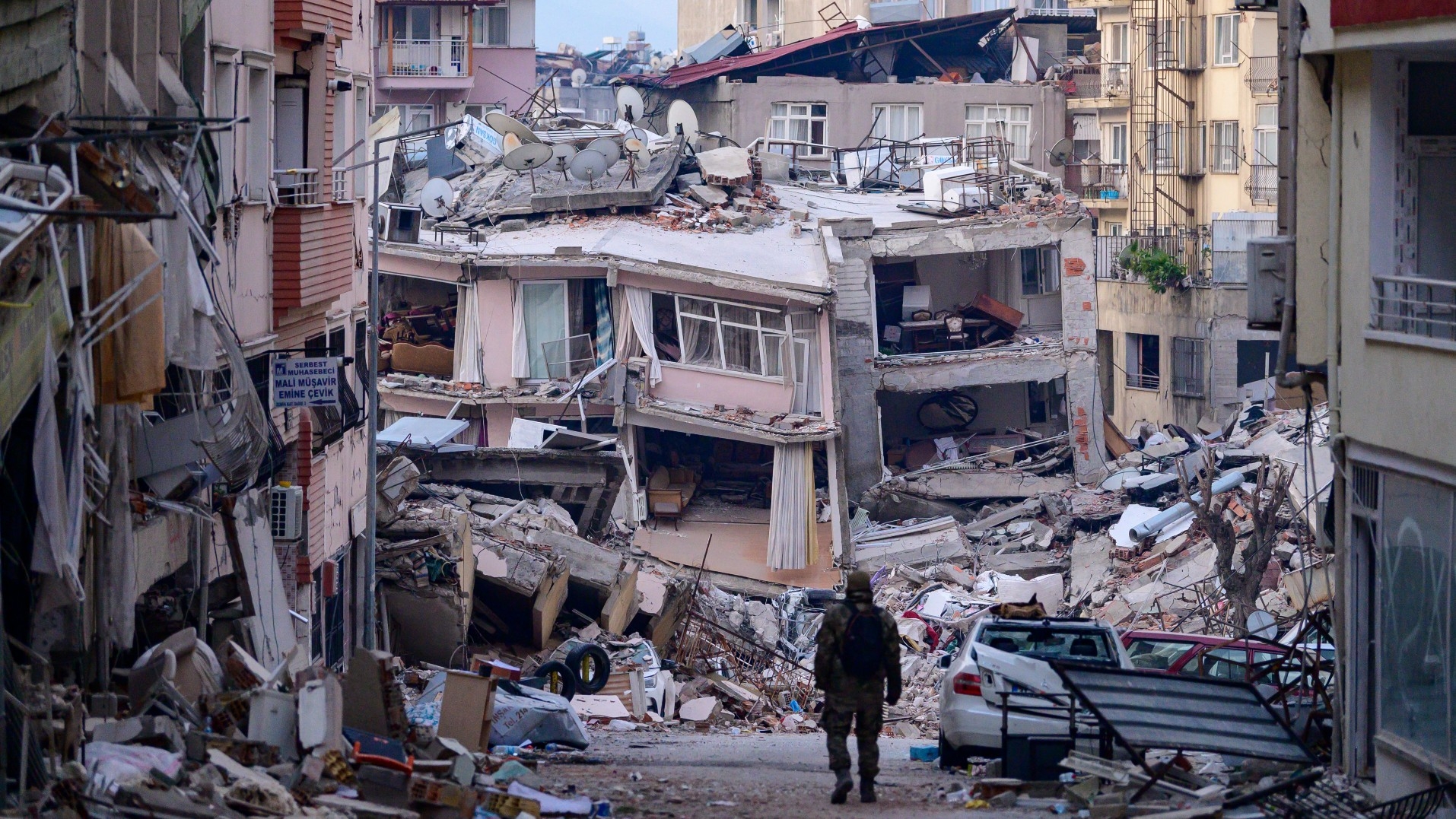
The earthquakes that rocked Turkey last week became the deadliest natural disaster in the country's modern history with the death toll surpassing that of a powerful quake in 1939.
At least 35,418 died from the 7.8 and 7.5-magnitude successive quakes as of Tuesday, according to President Recep Tayyip Erdogan.
A further 3,688 deaths have been registered in neighbouring Syria.
The December 1939 quake in the Erzincan province of eastern Turkey killed 32,968 people, according to the Kandilli Observatory and Earthquake Research Institute at Bogazici University in Turkey.
That 7.8 magnitude quake, which struck on Boxing Day, caused a 300km rupture of the earth’s surface between Erzincan and the city of Niksar. It left 100,000 people injured, damaging some 116,720 buildings.
New MEE newsletter: Jerusalem Dispatch
Sign up to get the latest insights and analysis on Israel-Palestine, alongside Turkey Unpacked and other MEE newsletters
It was the deadliest natural disaster in Turkey since it became a republic in 1923.
Last week’s quake is now thought to be the worst within the modern-day borders of Turkey in nearly a millennium, since an earthquake in the Cilicia region that killed over 60,000 people in 1268.
The southern city of Adana, then a part of the Armenian kingdom of Cilicia, was completely destroyed by that quake.
Turkey has a high propensity for earthquakes because of its location at the crossroads of three different tectonic plates.
These land masses, which make up the outermost shell of the Earth, are constantly moving and bumping into each other. Earthquakes most often occur at the plate's fault lines, which are large fractures on the planet's surface.
Most of Turkey is located on the Anatolian tectonic plate, which sits between the major Eurasian and African plates and a minor one, the Arabian.
There have been several more quakes in the last 50 years, including the 1976 Caldiran-Muradiye quake in the eastern Van province, which resulted in more than 4,000 deaths.
In August 1999, a 7.4 magnitude quake hit the western city of Izmit, in the region of Marmara. More than 17,000 people were killed and over 43,000 injured.
According to the country's Disaster and Emergency Management Authority (AFAD), Turkey recorded over 22,000 earthquakes in 2022.
Middle East Eye delivers independent and unrivalled coverage and analysis of the Middle East, North Africa and beyond. To learn more about republishing this content and the associated fees, please fill out this form. More about MEE can be found here.


